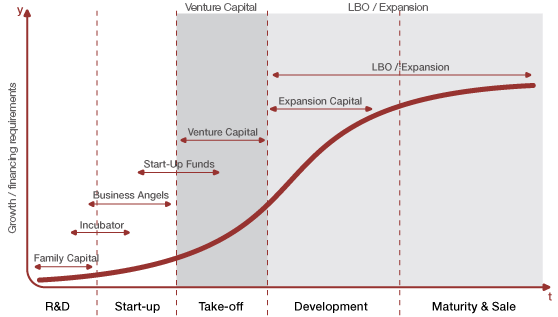What You Need to Know About Investing in Private Equity
Post on: 5 Июнь, 2015 No Comment

NEW YORK ( TheStreet ) — Individual investors have long been shut out of buying shares in privately held companies. But recent regulatory changes have now opened the private equity market to accredited investors.
The question is, should you be jumping in?
First, a little background. Private equity — as opposed to stocks listed and traded on public stock exchanges — represents a $426 billion market in the U.S. More importantly, it has consistently outperformed public markets, besting long-term returns from the Dow. S&P 500 and Nasdaq composite. (Disclosure: The author is the CEO of CircleUp, an online private-equity investment start-up.)
Private equity is also becoming more important as companies stay private longer as their value increases. Since 1980, the median age of a company doing initial public offerings has doubled, from six years to 12 years
That puts individual investors at a disadvantage. Facebook (FB ). for example, went public at a valuation north of $100 billion, which means investors in this still-high-risk company need it to become a $1 trillion company before they see a tenfold return. On the other hand, Peter Thiel invested $500,000 privately for 10% of the company in 2004. That investment has paid off far more than tenfold.
It’s not just Facebook. Across the board, companies are raising significantly more capital in the private markets before offering shares to the general public. The latest Dow Jones Venture Report showed that the median amount of capital raised prior to an initial public offering by companies has more than doubled in the last five years, rising to $101 million in 2013 from $49 million in 2008.
To be sure, private equity is not an asset class for the active trader. Private securities cannot be actively traded and the average holding period, while varying across industries, is often five to eight years. The private markets are no place for short-term speculators. Investments can be high risk and illiquid.
The illiquidity of the private markets — investments are long-term holdings that can’t be easily traded—means that investors need to pay keen attention to their time horizon and allocate assets accordingly.
Diversification is also key. As Rob Wiltbank. associate professor of Strategy and Entrepreneurship at Willamette University, said, Investing in a number of companies simply gives you more chances to support a company that really can take flight. Find an industry you understand and take the time to make multiple investments rather than just one.
In the private markets, fundamentals win out over all all else and there’s little room for short-termism, quantitative trading and reckless speculation. Some call the lack of immediate liquidity a bug, but it should be considered a feature.
Individual investors should re-assess their exposure, or lack there of, to the private equity markets. Increasingly, if you’re underweight private equity, you’re underweight our nation’s innovation economy — our country’s most promising, fastest growth and disruptive companies.














